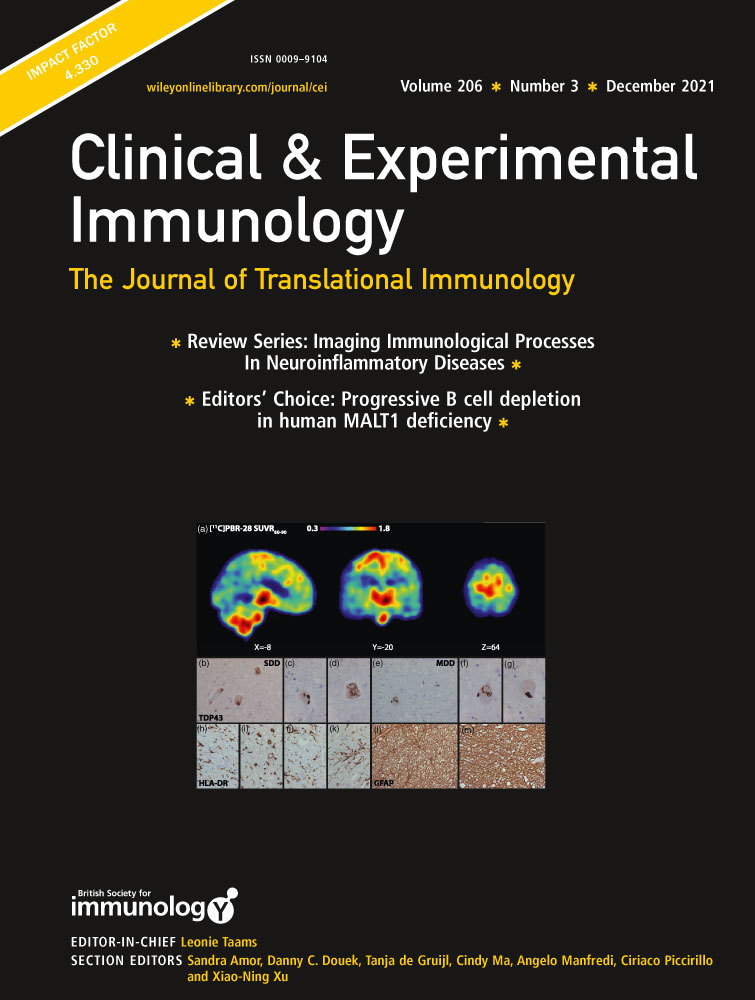Opsonization of apoptotic neutrophils by anti-neutrophil cytoplasmic antibodies (ANCA) leads to enhanced uptake by macrophages and increased release of tumour necrosis factor-alpha (TNF-α)
Abstract
Since proteinase 3 (PR3)-ANCA interact with PR3 on the surface of apoptotic polymorphonuclear neutrophils (PMN) and ingestion of apoptotic PMN is known to modulate macrophage inflammatory reactions, we raised the question whether PR3-ANCA-opsonized apoptotic PMN influence the uptake by macrophages and their state of activation. We therefor analysed the effects of PR3-ANCA-opsonized apoptotic PMN on the uptake process by enzymatic assay. We further investigated the production of TNF-α, IL-10, IL-12 and the secretion of lipid inflammatory mediators (TxB2, leukotriene B4 (LTB4) and prostaglandin E2 (PGE2)) by human monocyte-derived macrophages using FACS and ELISA methods. We show that PMN-opsonization by PR3-ANCA substantially enhances phagocytosis by macrophages and thereby triggers the production of TNF-α and TxB2. These in vitro findings indicate that PR3-ANCA opsonization of apoptotic PMN might be an important mechanism in the pathogenesis of Wegener's granulomatosis (WG), prompting macrophages to produce proinflammatory mediators. These mediators, mainly TNF-α, might prime further PMN leading to perpetuation of the known priming-dependent mechanisms of ANCA action.




